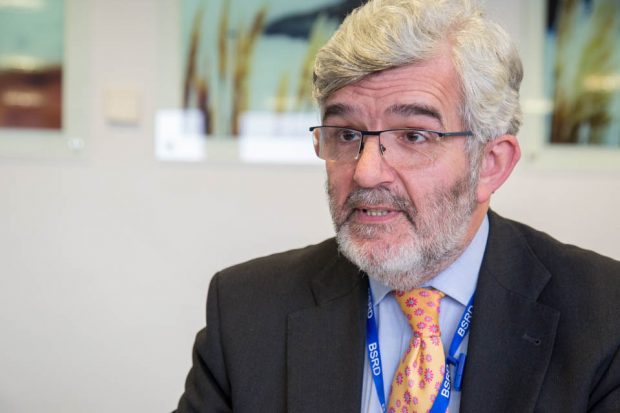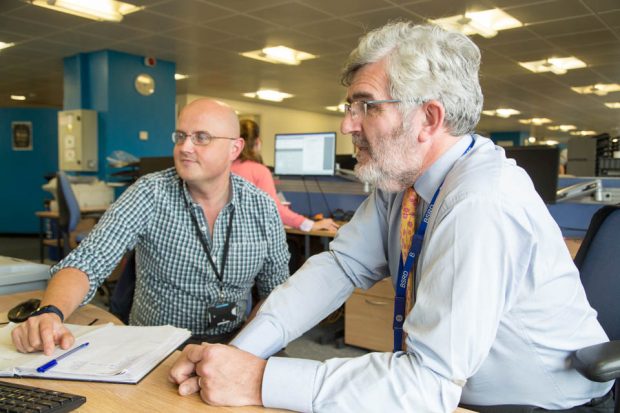Press release: CMA issues strong warning as information sharing fine is upheld
In December, the Competition and Markets Authority (CMA) found that Balmoral, a supplier of galvanised steel water tanks, along with 3 other businesses, had breached competition law by taking part in an exchange of competitively-sensitive information on prices and pricing intentions.
Balmoral was fined £130,000 for taking part in this unlawful information exchange. The exchange took place at a single meeting in July 2012 at which Balmoral was invited to join a long-running price-fixing cartel. Balmoral refused to take part in the price-fixing cartel, but exchanged competitively-sensitive information with its competitors. This meeting was secretly recorded by the CMA.
Balmoral was not a party to the main price-fixing cartel formed by other competitors, which was the subject of a separate infringement decision by the CMA.
The CMA welcomes today’s judgment which sends a crucial message to businesses about compliance with competition law.
The case highlights an important point for companies and individuals who are invited to take part in anti-competitive collusion. Specifically:
- Exchanging competitively-sensitive confidential information with competitors (for example, about prices or pricing strategy), even at a single meeting, can be a breach of competition law with serious consequences for the businesses involved.
- Any business that is approached to join a cartel, or become involved in anti-competitive arrangements – for instance, to coordinate pricing or to share out markets between them – must immediately reject the approach, and must do so clearly and unequivocally. It is not enough to refrain from price-fixing or market-sharing. The business (and its representatives) must leave the meeting, and make clear and explicit its refusal to take part.
- The business must also decline to take part in any discussions that involve the sharing of confidential and competitively- sensitive pricing information.
Michael Grenfell, the CMA’s Executive Director for Enforcement, said:
The CMA brought this case to send a strong signal to companies about these critical compliance obligations, which are needed to protect customers from the higher prices which result when competing businesses collude on price or business strategy, including through the exchange of competitively-sensitive information.
The CMA is aware that Balmoral did not participate in the main price-fixing cartel, and this is reflected in the relatively low fine imposed on it. But exchanging competitively-sensitive confidential information, even at just one meeting, is itself a breach of competition law. We welcome today’s judgment for upholding our view and making this clear in law.
The CMA is cracking down on cartels across all sectors. Any company that is approached to join a cartel or other anti-competitive arrangement should immediately and unequivocally reject the approach and avoid taking part in any exchange of commercially sensitive information, or risk breaking the law.
Notes for editors
-
Any business found to have infringed the prohibitions on anti-competitive agreements and on abuse of dominance in the Competition Act 1998 or the Treaty on the Functioning of the EU can be fined up to 10% of its annual worldwide group turnover. In calculating financial penalties, the CMA takes into account a number of factors including seriousness and duration of the infringement(s), turnover in the relevant market and any mitigating and/or aggravating factors.
-
In its decision on the exchange of competitively-sensitive information, the CMA found that Balmoral Tanks Ltd, Franklin Hodge Industries Ltd, Galglass Ltd and KW Supplies Ltd breached competition law by exchanging information regarding their current pricing and future pricing intentions, thereby reducing uncertainty among the suppliers about their likely pricing intentions. This included a discussion of target price ranges for 2 sizes of tank.
-
Further information on the case, including links to the CMA’s published decisions on this case, and on a related case involving an actual price-fixing cartel in this market among the other parties (to which Balmoral was not a party), is on the case page.
-
The level of Balmoral’s fine reflects a number of factors, including Balmoral’s refusal to join the cartel arrangement and the overall pro-competitive effect of its entry on the market in late 2011, as well as Balmoral’s significant co-operation in the CMA’s civil and related criminal investigation. Before Balmoral Tanks’ entry, the market for cylindrical galvanised steel tanks had been subject to a long-running cartel arrangement between all the UK suppliers which was the subject of a separate infringement decision; involving price-fixing, bid-rigging and market sharing by way of customer allocation. Balmoral Tanks Ltd was not a party to these long-running cartel arrangements.
-
No additional penalty has been imposed on the other 3 companies involved in the separate information exchange infringement, who have been fined over £2.6 million for their involvement in the cartel during the same period.
-
Anyone who has information about a cartel is encouraged to call the CMA cartels hotline on 020 3738 6888 or email cartelshotline@cma.gsi.gov.uk. The CMA crackdown on cartels campaign webpage is: https://stopcartels.campaign.gov.uk
-
The CMA has produced a short film explaining what information shouldn’t be shared with competitors.
-
For CMA updates, follow us on Twitter @CMAgovuk, Flickr and LinkedIn.
-
Media queries should be sent to: press@cma.gsi.gov.uk or journalists can call 020 3738 6337.



